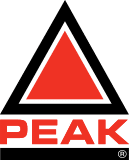Want to Stand Out? Showcase Your Strategic Problem-Solving Skills
There are many qualities employers seek in engineering candidates, but strategic problem-solving skills are always high on hiring managers’ lists of priorities. Engineers must think and act quickly to overcome challenges and obstacles on a project, so it is important to be able to showcase your problem-solving skills on your resume and during interviews to stand out from the competition.
Showcasing Problem-Solving Skills on Your Resume
Do not be tempted to default to a statement in your cover letter or resume that says you possess “strong strategic problem-solving skills.” Anyone can say that, and it doesn’t tell the hiring manager anything about your specific abilities. The key is to show, rather than tell, by offering specific examples of your problem-solving skills.
Keep in mind you don’t have to have solved your employer’s biggest crisis in order to make your point. Problems come in all sizes. It is your approach and solution that truly matter when choosing examples to include in your resume.
Take some time to brainstorm some of your best strategic problem-solving. Think of situations where you might have:
- Overcome a personal conflict to achieve a goal
- Identified inefficiencies in a process and developed a solution
- Pivoted under unexpected circumstances to keep a project on target
- Achieved a goal despite a lack of technical resources, monetary resources, etc.
As you begin to brainstorm, you’ll likely find several examples, both large and small, from your past positions. Choose the most impactful and include them on your resume.
Showcasing Problem-Solving Skills in an Interview
The list you brainstormed when updating your resume can be a useful guide to help you prepare for your interview, as well. Study those examples so you can use them to answer questions about your problem-solving approach and ability.
An effective way to frame your answers is the STAR format. It will help you keep your answers on track and succinct. STAR stands for:
- Situation: A brief overview of the situation you faced.
- Task: A brief description of the task at hand or the goal you needed to achieve.
- Action: The steps you took to solve the problem.
- Results: The outcome.
Try not to memorize stories, but keep your list of achievements top-of-mind and use the STAR format to help guide you as you speak. As you become more comfortable with the interview process, you won’t need to rely so heavily on these devices; it will become second nature.
If you are an experienced engineer seeking new opportunities and you’re ready to jumpstart your job search, reach out to the recruiting experts at PEAK Technical Staffing today or submit your resume online.
About PEAK
PEAK Technical Staffing can help connect you with employers and opportunities that leverage your engineering expertise and advance your career. We partner with employers nationwide who are looking for people with your skills and experience. Since 1968 PEAK has helped engineering professionals find jobs that offer flexibility, challenges and rewards.
Take a look at some of the engineering jobs we offer.
If you are looking for employers and opportunities that will take your engineering career to the next level and help you to achieve your goals, contact a PEAK recruitment expert today.

